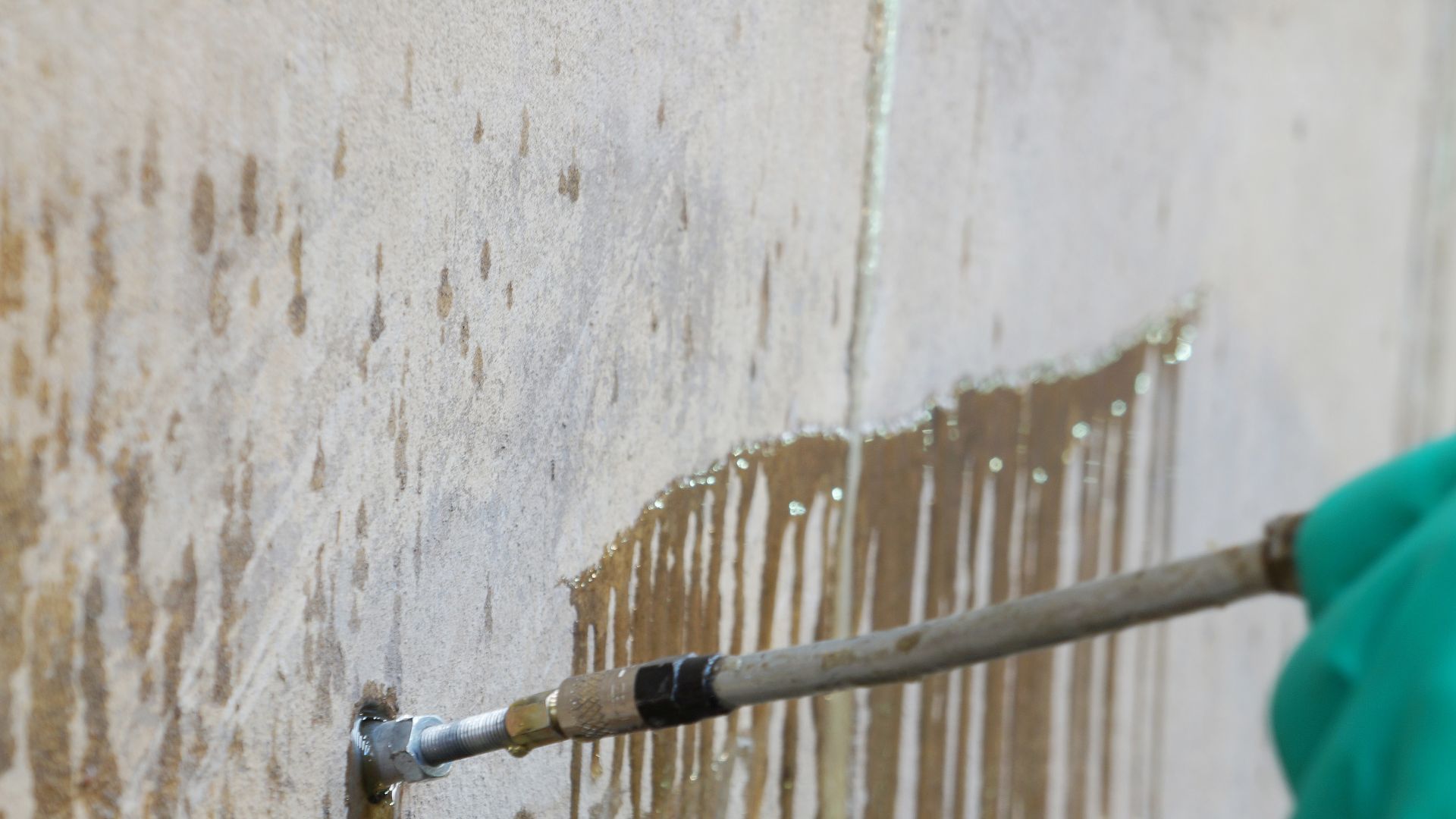Injection is a procedure of pumping cement-based, polyurethane-based, epoxy-based or special acrylate-based systems into damaged or cracked structures to securely seal leaks, repair compromised structures and make them watertight for the long term.
Injections Are a Good Choice Because They...
- Help avoid expensive costs of structural repairs and reduce operational downtime
- Can be used for all types of leak-sealing applications in concrete, masonry and natural stone structures
- Are able to form a new permanent watertight seal
- Can be used at any time, including during initial construction or later to extend the service life during any subsequent repair or renovation, depending on the project’s specific requirements
Successful Waterproofing with Sika Injection Systems
There are three primary success factors involved in ensuring the effectiveness and durability of injection projects. It is essential that the right combination of injection materials, injection equipment and injection method are selected. Together, this is what Sika’s extensive technical and practical experience provides:
Injection Material
The selection of the right injection material and the right specific injection product for the defined project requirements is the first key factor for success. The material’s viscosity, flexibility and behavior in contact with water are especially important - all which can significantly influence the effectiveness of the injection.
Injection Equipment
The second key success factor is having appropriate equipment for the selected injection material - for correct material preparation, mixing and delivery. This includes: the initial dosage and mixing, delivery from a suitable pump, to use of the right packers/ ports/ connectors.
Injection Method / Application
Thirdly, the correct injection method and application techniques must be followed by trained, skilled and experienced contractors, to ensure the success and provide complete, permanent leak-sealing solutions.
Sika’s Injection Solutions Provide Many Advantages
- We offer an extensive range of injection materials for all types of leak-sealing applications
- Our injection solutions are tested and approved to the leading global standards
- Sika’s experts provide technical advice and support
- Selected Sika injection systems can also be used to increase or restore structural integrity and load-bearing capacity
- Sika's high performance injection materials are fully compatible with Sika’s complete engineered waterproofing systems.
Learn more about our waterproofing systems.
Sika Provides Various Injection Materials
Polyurethane foaming resins are designed to expand with water to temporarily block the passage of water through the crack or void. Their fast expansive reaction with water forms a tough and flexible elastic foam. For permanent waterproofing, these polyurethane foaming resins are re-injected with a suitable non-foaming injection resin, usually also based on polyurethane.
Polyurethane resins are hydrophobic, flexible and used for non-structural injection sealing and waterproofing voids, cracks and joints. Their low viscosity allows good penetration into the concrete structure to seal leaks and achieve a durable elastic seal. Polyurethane resins seal with very strong edge adhesion to concrete and have hydrophobic characteristics. In voids, cracks and joints with high water ingress, pre-injection as temporary water stopping with a polyurethane foaming resin is required.
Acrylate resins are hydrophilic, very flexible and used for non-structural injection of cracks, joints and voids, including injection hose systems, compartment systems and area injections (e.g. grid and curtain). During application, acrylate resins have extremely low viscosity (similar to water) and therefore have ideal penetration abilities. Their reaction or hardening time is also adjustable, which allows flexibility to adapt the injection material to the prevailing conditions on site (temperature and injection distance, for example). Acrylate resin based materials seal and waterproof leaks through their hydrophilic swelling behavior in contact with water. The injection equipment is also easily cleaned with water.
Epoxy resins have relatively high tensile and compressive strengths in relation to concrete. They are generally regarded as ‘rigid’ materials and are widely used for structural repairs by injecting cracks and voids in load-bearing reinforced concrete structures or elements. Their low viscosity allows excellent penetration into cracks and strong adhesion to concrete, which helps to ensure permanent and durable load transfer. Epoxy resin based materials are suitable for many different structural injection requirements and applications in dry to slightly damp conditions.
Microfine cement suspensions are non-flexible and therefore non-movement-accommodating, rigid, polymer-modified, injection materials. Also known as microfine cement grouts, they are based on blended microfine cement. They are now widely used for structural injection to seal non-moving cracks, voids and construction joints. Due to their polymer modification, these cement-based materials can also have high flow characteristics and very good penetration ability.

